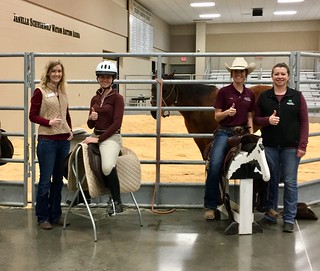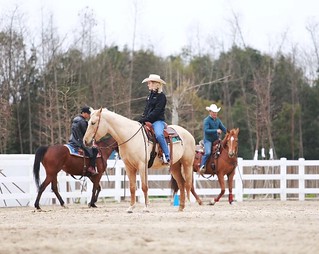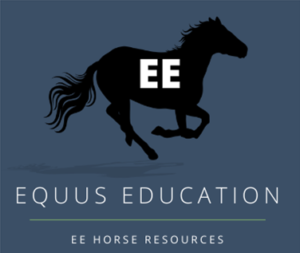I recently became aware of the horse related career, the equine extension specialist. Feeling a little in the dark about this, I contacted one at a university in Texas and asked if she’d be willing to answer some questions about her role. Below are Chelsie’s responses.

How much of your day/week is related to horses?
All of my job is related to horses and people. With horses, however, I participate in hands-on horse work 2-3 times/week. My other obligations involve interacting with people, traveling and work in the office.
What is it exactly that you do?
The Texas A&M AgriLife Extension Service is a unique education agency with a statewide network of professional educators, trained volunteers and county offices. The Extension Horse Program addresses priorities and needs identified at a local level by county horse program committees. Specialists, Extension Agents and industry professionals work together to address issues and opportunities of horse production, ownership and use through development of educational resource materials and activities.
The Extension horse specialists within the Department of Animal Science serve more than 950,000 Texas horse industry participants and more than 289,000 Texas horse owners. The Extension horse specialists provide research-based best management practices as related to nutrition, breeding, management, care and use. This is through educational programs and workshops.
Information developed by the Extension equine group is available to all clientele. This includes individual horse owners, goods and service providers, and also industry professionals. Extension remains a leader in helping horse owners become better organized through assistance and leadership in formation of associations and groups.
In addition, the horse specialists are committed to supporting the Texas 4-H, Extension’s primary youth program. This is through support of educational and competitive activities that foster decision making, problem solving and other important life skills.
In this field of work, is it possible to be a full time professional and earning a liveable income?
Yes.
What are the general steps taken to be employed in such a role?
Horse Program Specialists need a masters degree in a related field of study, while Horse Specialists need a PhD. Diversified horse experience is a plus to be a successful candidate in this area of work. This can include horse showing, judging, management, and also ownership.

Favourite horse memory?
I have many fond memories of all the mistakes I made as a kid trying to learn about horses on my own growing up. For instance, when I saddled my horse for the first time because my Dad wasn’t available. That saddle went flying off the side of the horse with me in it because I didn’t tighten the cinch properly. It was frustrating at times not having formal training as a kid. But I look back on it now and feel truly lucky to have learned so many things the hard way. It makes me a better educator today.
Future goals?
Future goals involve continuing to develop equine international opportunities to disperse equine education and provide cultural experiences for Texas A&M undergraduate students. Also, increasing our online following by continuing to utilize our Facebook page Texas Horse to disperse equine education and develop our YouTube channel Texas Horse Help.
Best thing about your sport/profession?
I never live the same day twice. The world of equine education is constantly evolving and I have to keep up! Plus it is extremely gratifying and fulfilling to see youth and adults develop their knowledge and passion for the horse.

Leave a Reply